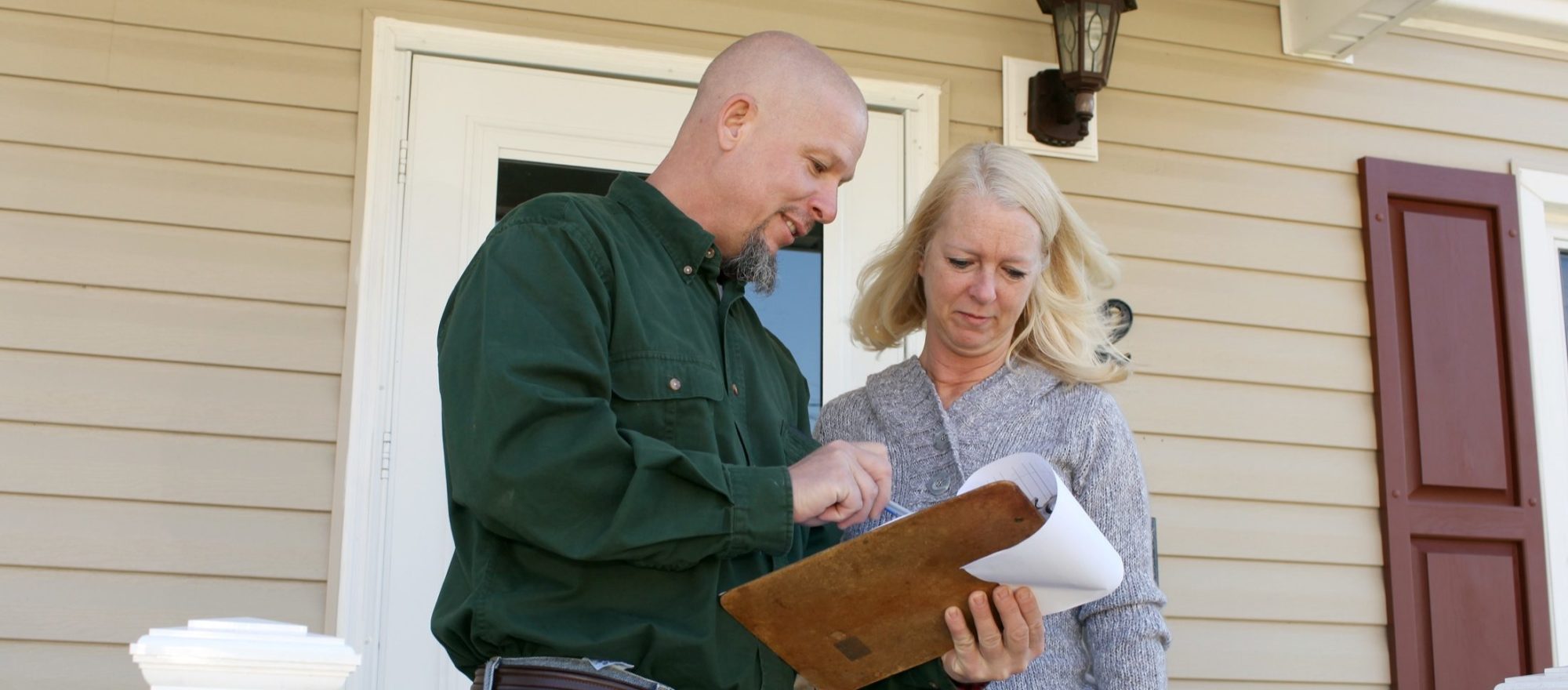Here in Pennsylvania, permit and inspection requirements for decks vary from municipality to municipality.
However, there are a number of rules of thumb when setting out to build a new deck. So while you will need to check with your local building codes before embarking on new construction, here is what you can expect regardless of where you live.
Building Permits Need to be Acquired BEFORE You Start
This is definitely not one of those situations when you want to ask forgiveness rather than permission. By definition, a permit needs to be acquired before you start the building process. While there are certainly processes for getting your deck up-to-code if you didn’t have a permit before building, these are much more of a hassle and may require a full reconstruction of your deck.
Permits Are Not Just a Formality
Depending on the nature of your deck, permits are an important tool for ensuring you and your family can enjoy your space safely. An improperly installed deck could collapse or could be a serious fire hazard. If your deck does cause an accident and was not permitted, you could be legally liable for injuries or damages. Permits are the best way to ensure that you do not have to navigate a family tragedy or expensive legal and insurance fees down the road.
Permits Usually Require Plans
Most permits require at least simple plans to verify the legitimacy of your proposed work. They can be a simple drawing of what you are looking to do or more detailed architectural plans. Make sure to check with your local building codes to see what kind of detail is required. Here at Integrous, we are happy to provide all plans and details needed to obtain your deck permit.
Permits Come with Inspection Requirements
Again, the nature of inspection requirements will vary from municipality to municipality. Some building codes require inspections while building is in process while others only require an inspection after the work is done.
A Building Permit and Inspection Provides a Record
One of the benefits of a correctly-permitted deck project is the paper trail. Even if you are building your deck for your own use and you have no plans to sell your home in the foreseeable future, the record of the permit will be filed. Sometimes new opportunities or family changes lead to unexpected home sales. This record will be useful as potential home buyers want proof of the legitimacy and quality of deck constructions.
Sometimes Permits Trigger Reassessments of Home Values
You should always be prepared to have your home revalued after completing a project like a deck installation. While the process will vary depending on where you live, a successfully-completed building permit will often trigger reassessment. When your home is revalued, you are likely to have your property taxes adjusted.
How Will the Permitting Procedure Influence the Design of My Deck?
Permitting as a practice is designed to ensure that your deck is safe and up-to-code. But what does bringing a deck up-to-code look like? Here are a few things you can expect to encounter:
Permits Adhere to Required Setbacks and Distances from Property Line
There are codes in place to ensure that you are being a good neighbor and not infringing on the property rights of those adjacent to you. That means that your deck generally cannot extend all the way to your property line or the street curb. The exact distance requirements of setbacks are set by the municipality.
However, regardless of the specific requirements, it is imperative that you adhere to setback regulations, as failing to do so can leave you liable to class action from an aggrieved neighbor. Further, these kinds of details will come under close scrutiny whenever you put your home on the market.
Permits Adhere to Building Codes
Today, most permits ensure that new structures adhere to the International Building Code (IBC). This is a universally-recognized standard for safety and welfare within the built environment. Similarly, the IBC brings together the time-honored practices with new technologies and developments in architectural design. By adhering to this internationally- recognized standard, you can feel confident in the safety of your new deck construction while also limiting potential hiccups in the future sale of your home.
Commercial Permits also Require ADA Compliance
If you’re installing a deck on a commercial property, you also need to make sure that your deck adheres to the Americans with Disabilities Act (ADA). This set of requirements ensures that anyone can access your deck easily and safely.
What if I Have Already Done Unpermitted Work?
While it is never wise to complete work without a permit, there are ways to make sure that previously unpermitted work is brought up-to-code. Here are some things to keep in mind if you are either considering moving forward without a permit or need to get a permit for a deck that’s already been completed.
Unpermitted Decks are Risky
Permits are in place to ensure the safety of you, your family, your guests, and your neighborhood.
If you attempt to build a deck without a permit, you run the risk of doing physical and economic harm to yourself and your community.
Permits ensure that your deck is structurally sound. A collapsed deck can cause severe injury and even death. Similarly, permits ensure that your deck is not a fire hazard. Not only can a fire destroy your home or property, but it can also spread to neighbors, thus putting those who had no say in your deck’s construction at risk.
Unpermitted decks are also financially risky. If you put your home on the market, all of the records of building projects will be put on display. Potential buyers will be turned off by the risks of a home without the proper permits and inspections.
Getting a Permit After the Fact
There are processes in place for getting an unpermitted deck up-to-code, but the process can be very unpleasant.
Essentially, you will need to apply as if the building was never completed. This is not to say that you are hiding the fact that you have an unpermitted deck; it is just that you will need to go through the same steps from the beginning again.
Depending on where you live, you will likely need to have plans approved (again, reflecting what has already been built) and inspections of the construction. If your deck is considered up-to-code, you will receive a permit, although you may be given a fine.
However, if your construction is not up-to-code, you will be required to get it up-to-code, and inspectors will ensure that you do. That may require replacing a particular section or you may need to remove the construction entirely. For example, if the footings of your deck are not deep enough, you will have to remove large sections of the deck so that the footings can be replaced. Regardless, it is much more affordable to do the process the right way from the start.
One of the best ways to ensure that your deck is up-to-code and properly permitted is to partner with a reputable company. Here at Integrous, we have years of experience with the permitting process. We will ensure that the entire deck construction is above board. That way, you can feel confident in the safety of your deck and in the resale value of your home. So if you’re ready to build the deck of your dreams, don’t do it alone. Contact Integrous today!

